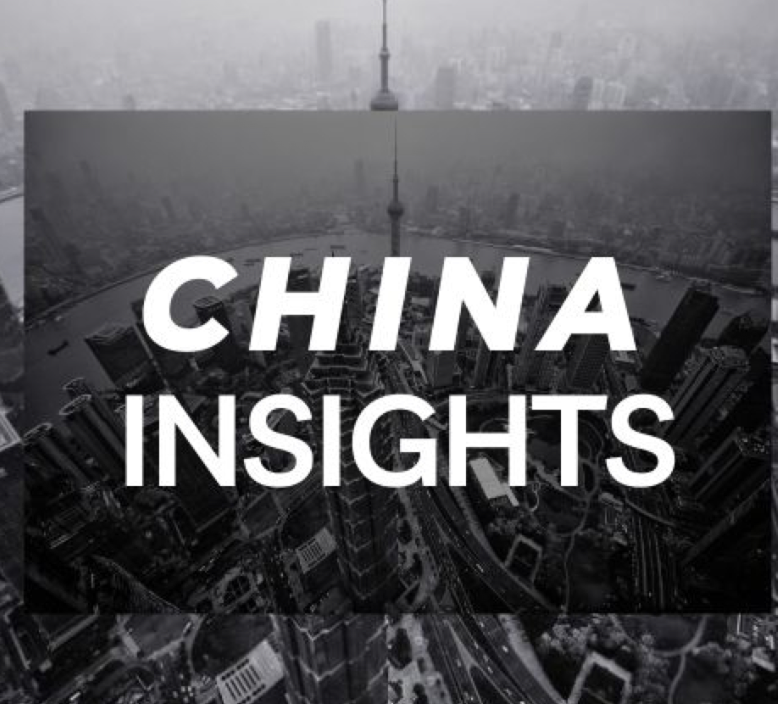Founded in Stockholm, Sweden, in 1970, Kreab is a global strategic communications consultancy with offices in 25 countries, serving over 500 global clients. Kreab advises on communication issues of strategic importance in business, finance, and politics, helping clients solve complex communications challenges and achieve their strategic goals. The Kreab Beijing team is well known for its track record of helping clients manage and strengthen their reputation through services spanning corporate communications, financial communications, public affairs, and social media. Contact Kreab at kchina@kreab.com, follow Kreab on WeChat (ID: KreabChina), or visit Kreab’s website at https://www.kreab.com/beijing.
SwedCham China Insights for the Week of September 4 - September 8 , 2023

Top news of the week:
China sets up a bureau for private sector
September 4, 2023
In a significant move to further bolster the private sector, a crucial driving force for the country's economic output, China has set up a bureau on September 4, specializing in promoting the private economy's development under the National Development and Reform Commission, the country's top economic planner.
Commodity market supply growth gains momentum
September 5, 2023
China Bulk Merchandise Index stood at 102.7% in August, up 0.4 percentage points from the previous month. The expansion in the supply of most commodities accelerated. Among them, the supply of iron and steel, refined oil products and non-ferrous metals saw respective increases of 5.2%, 4.2% and 3.8%, with the growth rate accelerating by 0.6, 0.1 and 2.1 percentage points respectively from July.
Li Qiang attends leaders’ meetings on East Asia cooperation and visits Indonesia
September 6, 2023
At the invitation of President Joko Widodo of Indonesia, the current ASEAN chair, Premier Li Qiang attended the 26th China-ASEAN Summit, the 26th ASEAN Plus Three (APT) Summit and the 18th East Asia Summit held in Jakarta, Indonesia from September 5 to 8, and paid an official state visit to Indonesia.
World’s largest services trade fair closes in Beijing, achieves 1,100 outcomes
September 7, 2023
Data from the Ministry of Commerce showed that by the noon of September 6, with over 9,000 companies participated the China Beijing International Fair for Trade in Services (CIFTIS) offline and online. With nearly 280,000 visitors attended and more than 1,100 achievements made, the fair's international participation and influence power was further increased.
China's foreign trade remains stable in the first eight months in 2023
September 8, 2023
China’s imports and exports reached 27.08 trillion yuan (US$3.7 trillion) during the first eight months of 2023, down 0.1 percent year-on-year (YoY), according to the General Administration of Customs. Between January and August, the country’s exports grew by 0.8 percent YoY to reach 15.47 trillion yuan, while imports were down 1.3 percent YoY to 11.61 trillion yuan. Trade surplus increased by 7.3% to 3.86 trillion yuan.
Insight of the week:
Against a backdrop of simmering tensions in parts of the world, world leaders were set to hold a series of meetings on security and trade on September 7, as an ASEAN-hosted summit in Indonesia entered its final day. U.S. Vice President Kamala Harris, Chinese Premier Li Qiang and Russian Foreign Minister Sergei Lavrov joined the summit led by the Association of Southeast Asian Nations (ASEAN), along with leaders of partner countries Japan, South Korea, India, Australia and others.
An undercurrent of tension accompanied the talks on issues ranging from trade and technology to China's increasing assertiveness in the South China Sea, the Myanmar junta’s refusal to cooperate with ASEAN on a peace plan, the war in Ukraine, and suspicion that North Korea plans to supply weapons to Russia. The Chinese premier took an active role in this conference.
China has proposed to speed up the ASEAN-China Free Trade Area 3.0 upgrade negotiations and strive to conclude the negotiations in 2024, according to a list of China's cooperation initiatives for the ASEAN-related summits. According to the list, China will promote mutually beneficial cooperation between the Belt and Road Initiative and ASEAN's Indo-Pacific Outlook. China encourages ASEAN countries to make good use of the ASEAN-China Cooperation Fund and jointly work for the high-quality implementation of the Regional Comprehensive Economic Partnership.
In addition to cooperation with ASEAN, the Chinese Premier and the Japanese Prime Minister met briefly on the sidelines of the summit on September 6 and discussed Japan's release of treated radioactive water from the Fukushima nuclear plant into the sea. Chinese Premier Li Qiang also said China is willing to work with Australia to restart and resume bilateral exchanges in various fields. He made the remarks when he met with Australian Prime Minister Anthony Albanese on the sidelines of the leaders' meeting.
